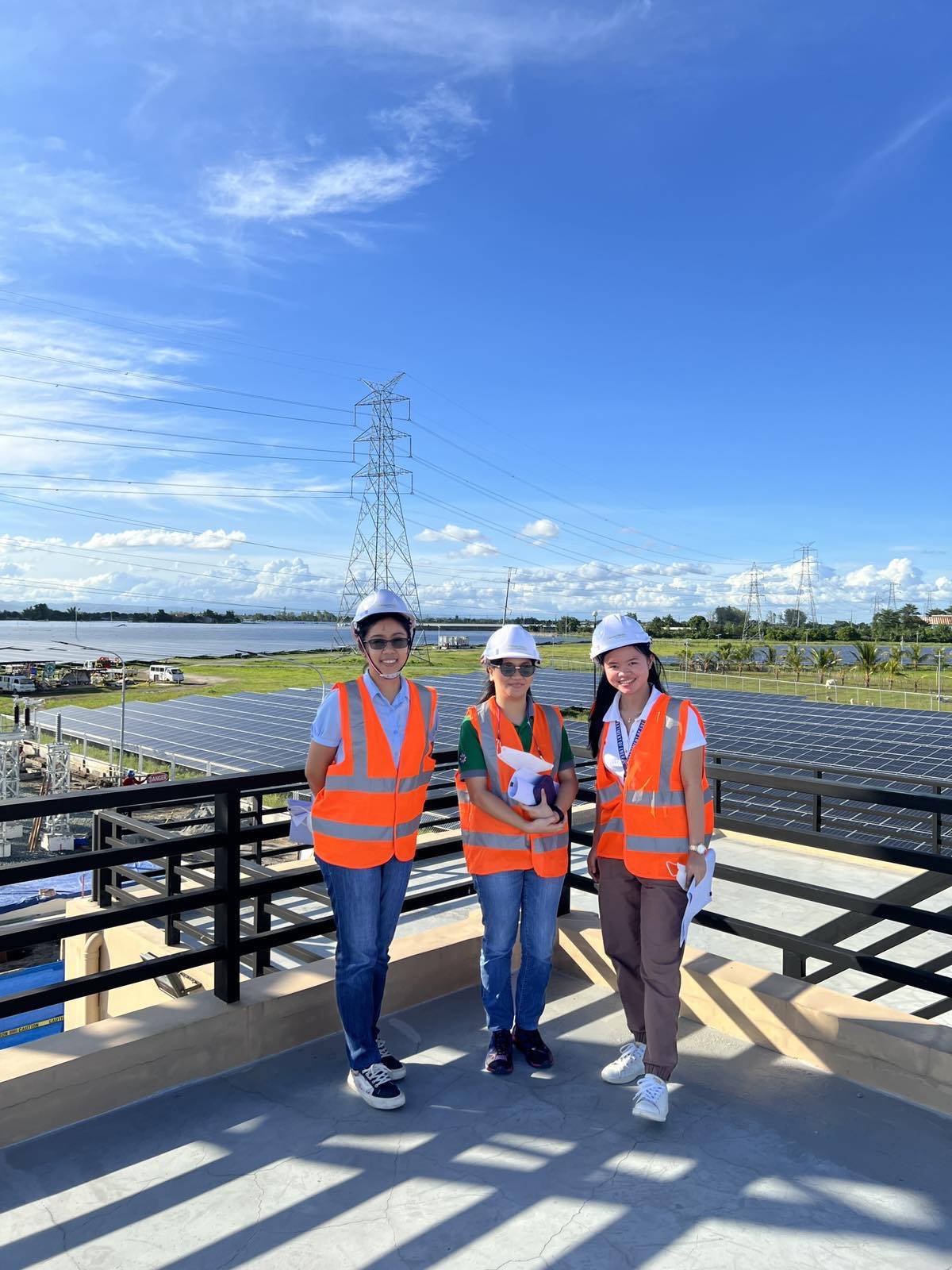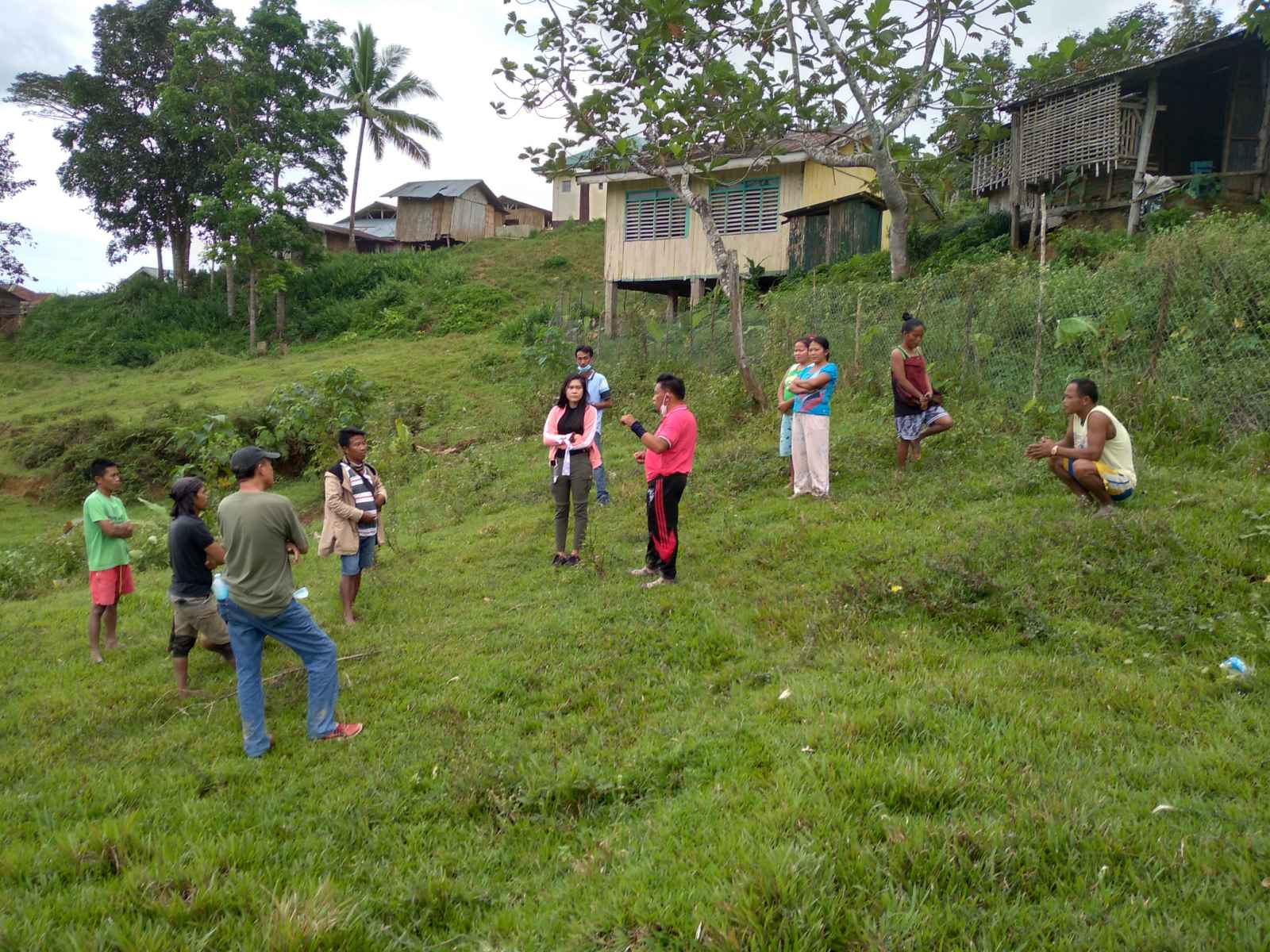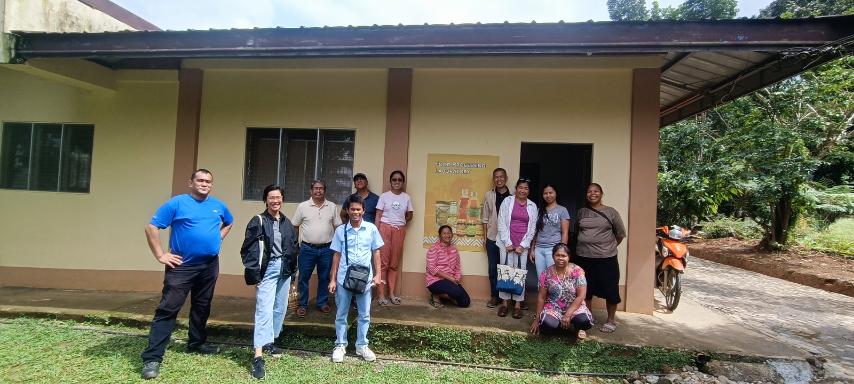by Tea Jalin C. Ty, Monitoring & Evaluation Officer, UNDP DREAMS
“Can you really go up the roof?” and other questions asked to women working in Philippine renewable energy
March 9, 2023
Philippine Renewable Energy is helmed by a blockbuster all female leadership. The Department of Energy Renewable Energy Management Bureau’s supervising Undersecretary, supervising Assistant Secretary, Director, and Assistant Director are all women with decades of experience, commanding competence, and respect. Further along the energy regulatory street, a woman also leads as chairperson for the Energy Regulatory Commission, following a term as the chair of the National RE Board.
Despite the heartening female representation among national government RE leaders, women I meet on the field, especially in the rural areas, seem as rare as viable geothermal reservoirs. A 2017 UNESCO Study cited that although 52% of STEM research in the country are women, the majority of STEM professionals are concentrated in the National Capital Region and surrounding Regions IV-A and III.
Myself a 25-year-old woman working on renewable energy for remote areas, I am often among the few, if not the only, woman in the room. Amidst Philippine norms, this means I was dared “Can you finish this? It’s for men!” when I ordered the Super Overloaded Pansit Batil Patung famous noodles in a micro-hydro project location. I assure my mom every time I go on field when she asks “Are you the only girl? Do you know the men with you?” I was often asked “Can you really go up the roof?” to see the solar panels.
I prepared a few of my own questions for women working in Philippine RE. These questions aim to shine a light on the women RE professionals on the field whose daily work remains unsung but actually blaze a trail for future RE women. I then gathered answers from two other RE women I work with at UNDP DREAMS:
- Engineer Faith Espinosa is the Municipal Engineer Assistant of the Government of Tapaz in Capiz. She powers field activities with local officials, UNDP DREAMS, and the community for the installation of three Solar PV Powered Potable Water Systems in her municipality. Among all of UNDP DREAMS’ focal partners from municipal engineer offices, Engineer Faith is the only female, and the youngest!
- Engineer Eden Rose Perez is Senior Science Specialist from the DOE REMB Solar and Wind Energy Management Division. Engineer Eden shares her expertise for the UNDP DREAMS supported Oriental Mindoro Green Energy Pilot Project, which provided training on solar and will install solar PV systems across public buildings, faith-based structures, and an indigenous people’s livelihood center. Engineer Eden herself grew up in the off-grid province of Oriental Mindoro. She has served seven years in DOE, and is a loving mother to her five-year-old son.
How did you decide to become an engineer?
Engineer Faith: Engineering is actually not my dream course. When I graduated from high school, I was only torn between pursuing Psychology or Applied Mathematics. Engineering was my family’s idea, but they never forced it on me. I was convinced to pursue this path, and in a way, I also enjoyed it. After many years of working mostly in private companies and outside the country, at one point I decided to return and use the experience I have to also give back to our country in the form of public service.
Engineer Eden: First, I wanted to be an engineer because I love Math, which is the normal mindset of a student in high school, without any idea of the other side of engineering works. But, I studied Electrical Engineering because my father is working in the electrical field also. My father is the one who chose what will be my course in college. Being the firstborn, I believe that it’s my job to fulfill the dream of my father and make him proud.

Engineer Eden (leftmost) with other female colleagues in a site visit to a solar RE developer | Photo from Eden Rose Perez
What’s your favorite accomplishment for RE?
Engineer Faith: More than the accomplishment of practicing engineering for this project in a technical sense, like applied hydraulics and construction estimates, my favorite part is communicating with the indigenous people in different barangays regarding the project. Seeing their excitement and how they look forward to the project’s completion that would benefit their families and community is nothing less encouraging.
Engineer Eden: In RE, specially in solar and wind, it’s an accomplishment for me that I was able to help the Philippine RE Developers successfully commission its plant. It is overwhelming when other RE warriors/engineer/personnel say “Thank you” after all the project’s huge and complicated requirements and physical/mental stress. In the end, [these RE developers] successfully contribute RE generation to the country. With DREAMS, as a probinsyana (someone who grew up in the province) I’m happy when I helped my kababayan (people from my hometown) access electricity in far-flung areas. I am especially proud of helping the Mangyan indigenous people and other children with no access to modern society electrification and enable their participation in school.

Engineer Faith (fifth from left, in pink) visiting a potential deepwell site for a Solar Powered Potable Water System | Photo from Melvin Purzuelo
What is the best way to support women in RE?
Engineer Faith: We can best support other women in RE by sharing our own actual experiences in the projects we handle. May it be in the field, in engineering design, or in processing documentary requirements, shared knowledge and experience are of great help, especially to those who are new in RE.
Engineer Eden: It is more helpful if there is a support group for women engineers who promote equal rights in society and employment, encourage every woman to accomplish things together, and provide guidance and assistance for each other.

Engineer Eden (in pink, fifth from the left), with solar PV contractors, SF4RE Partner WeGen Laudato Si, Inc. Engineer (fourth from the left, background), the Provincial Engineering Office Engineer (fourth from the left, foreground), UNDP DREAMS project team, and the Mangyan-Alangan women leaders of the Tugdaan Mangyan Center for Learning and Development (rightmost) in front of the Tugdaan Food Processing Laboratory housing the calamansi and honey processing plant. The building will install in March 2023 a 4.4 kW Solar Rooftop System as part of the UNDP DREAMS SF4RE Oriental Mindoro Green Energy Pilot Project.
Any parting advice or message to other women in RE?
Engineer Faith: As women, working in RE can sometimes be physically exhausting. It is important to always take care of our health as we continue to support these initiatives for preserving the environment.
Engineer Eden: For all women engineers, let’s continue to do what makes us proud, strong, and intelligent. Let’s support other women engineers, our friends, our sisters, our daughters, and other women who choose the same path as ours.
The above snippets of the female experience working on mainstreaming RE in the Philippines are fond memories for us women in RE. Simultaneously, it’s an insightful introspection on traditionally male workplace norms still in flux, still bargaining what gender equality is in the Filipino sense. Most importantly, it tells us that Philippine RE is, and can be even more, female.
The Filipino phrase “ilaw ng tahanan,” literally translating to light of the home, refers to women and their valuable role as a family’s homemaker and mother. This Women’s Month, I celebrate women in the traditionally male-dominated field of electricity who take the phrase to a whole new meaning, women who work towards SDG 7 clean and affordable energy needed to power ilaw sa tahanan – lights for Filipino homes.
Development for Renewable Energy Applications Mainstreaming and Market Sustainability (DREAMS) is a June 2016 – July 2023 project being implemented by the Department of Energy through the Renewable Energy Management Bureau, in partnership with the United Nations Development Programme and the Global Environment Facility. The project will promote and facilitate the commercialization of renewable energy markets through the removal of barriers that will increase investments in RE-based power generation projects.
Support Facility for RE (SF4RE) is a $1.7 million facility under the Development for Renewable Energy Applications Mainstreaming and Market Sustainability (DREAMS) project which aims to provide local capacities and encourage investments that will integrate RE policies and projects in the executive and legislative agenda of LGUs, DUs, academe and the community strategies of other agencies organizations, rural electric cooperatives, and civil society organizations/foundations. Off-grid and far-flung areas are priority sites.

 Locations
Locations



